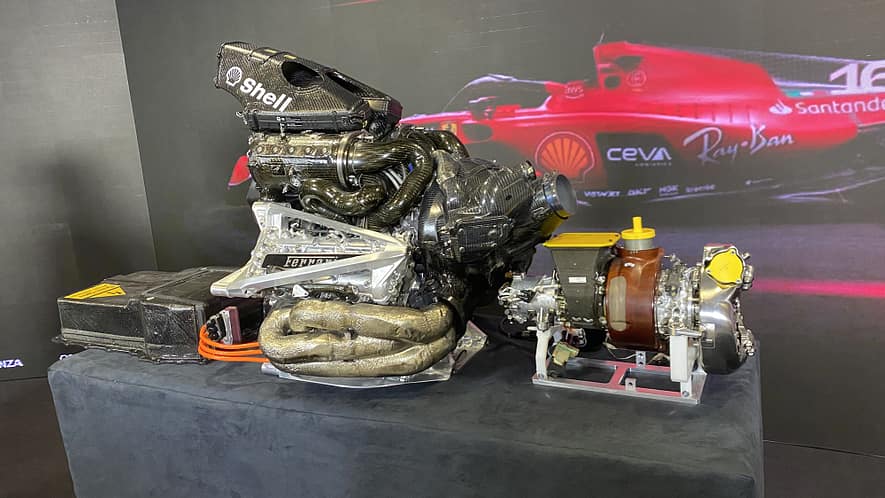It was the dominant Formulation 1 matter in latest weeks. A number of producers needed to overturn the brand new engine laws for 2026. After F1 CEO Stefano Domenicali himself floated the thought of a V10 engine with artificial gas instead for the long run and FIA President Mohammed bin Sulayem jumped on the bandwagon, Purple Bull and Ferrari needed to grab the chance.
The 2 heavyweights of the premier class fought towards the brand new energy unit that’s coming to Formulation 1 in 2026. The electrical share will improve considerably: virtually half of the facility is to be delivered by the battery, with the remaining coming from the V6 turbo. Formally, the groups voiced security considerations to the FIA. The longer recuperation phases may result in massive velocity variations and create harmful conditions.
Different voices within the paddock, nonetheless, noticed a distinct motivation behind the strikes. Ferrari and Purple Bull are reportedly behind within the improvement of the brand new engine for 2026. It’s rumored that Mercedes is effectively on its solution to delivering the very best energy unit, just like 2014. Again then, the engine builders in Brixworth had designed the transition to the complicated present technology energy models greatest and had Formulation 1 in a stranglehold for a number of years.
No modifications to power break up deliberate
The primary setback for the opponents of the brand new laws got here on the Bahrain Grand Prix. At a gathering of all engine producers, Ferrari and Purple Bull have been rejected of their request to rapidly reintroduce the specified V10 naturally aspirated engine into the vehicles. Newcomer Audi, returnee Honda, and Mercedes wouldn’t have been capable of develop a distinct engine at such quick discover.
However the opposition didn’t quit. They needed to loosen up power break up administration. On Thursday (April 24), nonetheless, Ferrari and Purple Bull, who’re growing their very own combustion engine for the following season and are supported by Ford on the electrical aspect, suffered their subsequent defeat. The Formulation 1 Fee rejected the proposal to vary the distribution between combustion engine and battery. The plan had been to scale back the 350 kW on the electrical aspect to 200 kW throughout races. The remainder of the facility would have needed to come from the 1.6-liter V6 turbo engine, as reported by German car journal Auto Motor und Sport.
Mercedes group boss Toto Wolff was angered by his opponents’ efforts forward of the assembly. “I truly needed to guard ourselves and never touch upon it. However that is actually a joke. Solely every week in the past we had a gathering concerning the engines. And now these items are already again on the agenda.” For now, the Austrian can breathe a sigh of aid. The brand new laws can be given an opportunity in the interim.
Backdoor stays open
The official FIA assertion reads: “The F1 Fee mentioned potential enhancements to the power administration technique for 2026 in addition to measures to handle monetary points that engine producers may face if both efficiency deficits or vital reliability points happen in 2026. All these matters can be mentioned in additional element by specialists within the acceptable advisory committees.”
With this resolution, the premier class has taken precautions. Ought to there be main efficiency variations on the racetrack subsequent yr, there can be prospects to make changes within the curiosity of the game. If producers fall considerably behind, they might possible be allowed to exceed the engine funds cap and obtain extra check bench hours.




